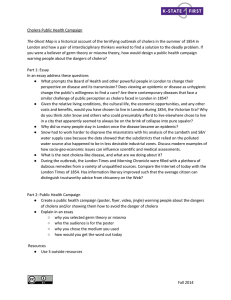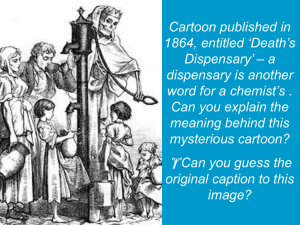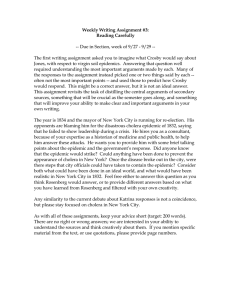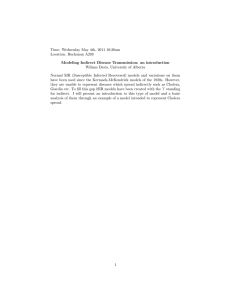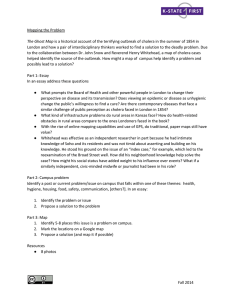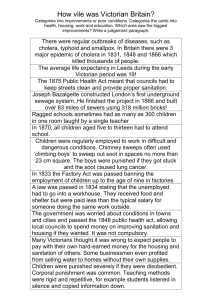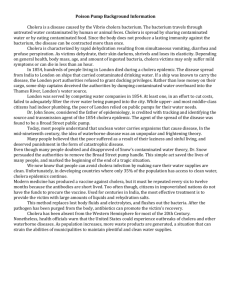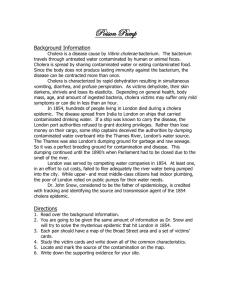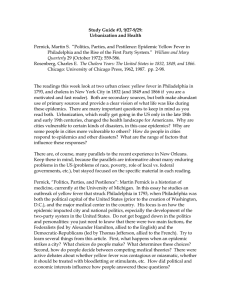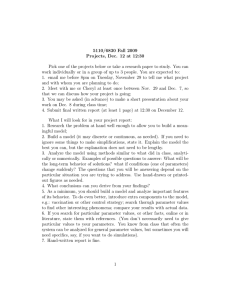Public Health - The Ecclesbourne School Online
advertisement
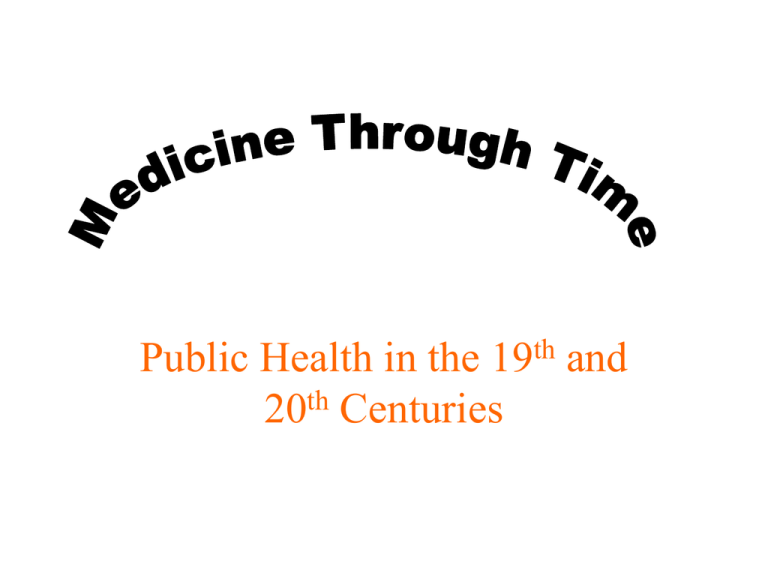
Public Health in the 19th and 20th Centuries th 19 century Britain • The Industrial Revolution coincided with a huge increase in population • Cities and towns were overcrowded – poor provision of sanitation • Many supported ‘laissezfaire’ – no government intervention Cholera arrives! • Arriving from the East the spread of cholera was helped by ignorance • Common sense was often over-ruled by men wanting to protect business interests • The ‘miasma’ theory was still held by many Cholera – the facts • Arrived in Britain in 1831 – epidemic by 1832 • Spread when infected sewage gets into drinking water – leads to extreme diarrhoea • Both rich & poor caught illness • Government began by introducing regulations about burials but then lost interest when epidemic declined • Epidemics occurred in 1848, 1854, and 1866 Time for change? • 1842 Chadwick publishes his “Report on the Sanitary Conditions of the Labouring Classes’ • Privileged classes shocked by findings • Government introduced Public Health Bill which was opposed by some MPs • Public Health Bill passed in 1848 (more cholera!) Public Health Act • Central Board of Health set up in London • Public Health boards could be set up where death rate was more than 23 per 1000 per year • Boards had power to raise money to pay for drains & sewage disposal • Central Board closed down in 1854 Public Health Act 1848 The work of Dr Snow • In 1854 London was again hit by a cholera outbreak • John Snow linked the disease to contaminated water – removing the handle from a water pump stopped the epidemic! • Pasteur’s work on his Germ Theory in 1860s supported Snow’s work Government Action • 1872 country divided into ‘sanitary areas’ run by medical officers of health • 1875 Public Health Act forced local government to act on health issues • Artisans’ Dwellings Act gave local authorities power to buy up slums and build better houses in their place • Joseph Bazalgette built hundreds of miles of sewers in London Public Welfare • In 1834 the first attempt to deal with poverty on a national basis – the Poor Law • Those who could not find work went into the workhouse (lasted till 1929!) • Hospitals and schools were provided by charities – little government involvement • Some wealth business men made a difference eg Cadburys and Titus Salt who created purpose built villages for workers Government Action • 1899-1902 the Boer War. 40% recruits unfit for military service through poor diet and living conditions • 1906 Liberal Government introduced first stages of welfare state • 1906 Free school meals • 1909 Old Age Pension (for 70 year olds!) • Job centres 1909 • National Insurance Act 1909 The NHS • Great social problems were highlighted by the Second World War • The Beveridge Report called for the provision of state security ‘from the cradle to the grave’ (1942) • Beveridge spoke of the right to be free from the 5 ‘giants’- want, disease, ignorance, squalor, and idleness • National Health Service set up in 1946 by Aneurin Bevan
